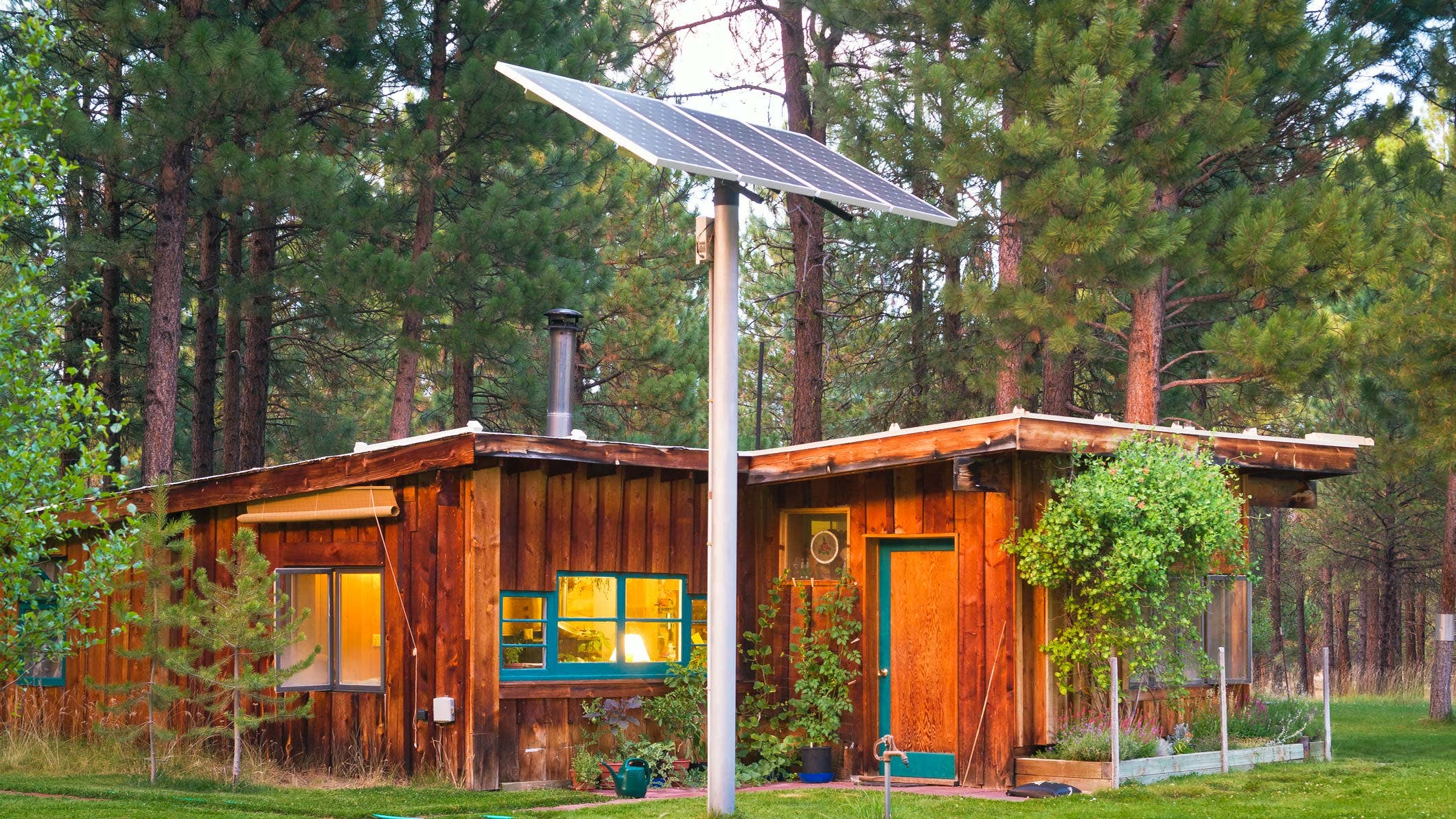Kong survival off grid living net worth – Kong Survival Off-Grid Living Net Worth: The mythical ape’s resilience inspires a growing movement embracing self-sufficiency. But what does it truly mean to live off-grid, and how does one’s financial picture change when abandoning traditional metrics of wealth? This exploration delves into the challenges, strategies, and ethical considerations of adopting a Kong-inspired off-grid lifestyle, ultimately questioning the very definition of net worth.
From meticulously crafting shelters reminiscent of Kong’s jungle dwellings to mastering sustainable resource management techniques, the path to off-grid living is fraught with both physical and financial hurdles. This article examines the initial investment required, compares the long-term financial viability of this lifestyle with traditional models, and explores alternative income streams. Beyond the monetary, we’ll also consider the intangible benefits, including improved physical and mental well-being, and the crucial ethical implications of environmental impact and resource consumption.
Kong: The Survival Aspect

The colossal ape Kong, a fictional icon of strength and survival, inspires a romanticized view of off-grid living. However, attempting to emulate his survival techniques in the real world presents significant challenges and potential dangers. This analysis examines the discrepancies between Kong’s fictional feats and the realities of off-grid existence, highlighting the crucial differences and potential risks involved.
Challenges of Emulating Kong’s Survival
Individuals attempting to live off-grid inspired by Kong face numerous hurdles. Kong’s environment, a largely unexplored island teeming with unique flora and fauna, is drastically different from most accessible off-grid locations. His immense strength and size allow him to overcome obstacles that would be insurmountable for humans. Furthermore, his fictional access to readily available food sources – often large animals – is unrealistic in most real-world off-grid scenarios.
Successfully foraging for sustenance, building adequate shelter, and securing water sources require extensive knowledge, skill, and preparation – far exceeding what is typically portrayed in fictional narratives. The lack of readily available tools and technology also poses a significant challenge, necessitating a high level of self-reliance and ingenuity.
Do not overlook the opportunity to discover more about the subject of best countries for off grid living.
Comparing Fictional and Real-World Survival Techniques
Kong’s survival strategies, largely based on brute strength and intimidation, differ significantly from real-world off-grid practices. While Kong relies on physical dominance, human survivalists emphasize resourcefulness, planning, and careful resource management. Real-world off-grid living emphasizes sustainable practices, such as responsible hunting and gathering, water purification, and efficient shelter construction. Kong’s methods, while effective in his fictional context, are often unsustainable and inherently dangerous for humans to replicate.
For example, his reliance on raw power in acquiring food contrasts sharply with the careful planning and ethical considerations involved in sustainable hunting practices.
Dangers and Risks of Emulating Kong’s Methods
Attempting to replicate Kong’s survival methods poses significant risks. Encountering dangerous wildlife without proper training and equipment is extremely hazardous. Improper food handling can lead to serious illness or poisoning. Lack of knowledge about local flora and fauna can result in accidental injury or consumption of poisonous plants. Building inadequate shelter exposes individuals to the elements, leading to hypothermia or heatstroke.
Furthermore, the lack of medical assistance in remote locations increases the risk of complications from injuries or illnesses. The romanticized image of self-sufficiency often overlooks the very real dangers of living off-grid without adequate preparation and expertise.
Hypothetical Survival Scenario: A Kong-Inspired Challenge
Imagine a scenario where a group of survivalists, inspired by Kong’s island environment, finds themselves stranded on a remote, densely forested island. Their initial supplies are limited to a basic first-aid kit, a few tools, and a limited amount of non-perishable food. The island features a variety of flora and fauna, including some potentially dangerous species. Success hinges on their ability to: (1) Build a sustainable shelter that provides protection from the elements and wildlife.
(2) Secure a reliable source of potable water. (3) Develop effective hunting and foraging strategies for sustainable food acquisition, carefully identifying edible plants and animals. (4) Create effective tools and weapons from available resources. (5) Navigate the terrain and understand basic survival signaling techniques. Failure to master these skills could lead to serious injury or death.
This scenario emphasizes the crucial role of planning, skill, and knowledge in real-world survival, highlighting the significant gap between fiction and reality.
Off-Grid Living Strategies Inspired by Kong: Kong Survival Off Grid Living Net Worth

Kong, the colossal ape, embodies remarkable survival skills in a challenging environment. His ability to thrive in a largely untouched, resource-scarce landscape provides valuable insights into effective off-grid living strategies. Analyzing Kong’s resourcefulness and adaptation can inform practical approaches to sustainable living, emphasizing self-sufficiency and environmental harmony.
Essential Skills for Off-Grid Living
Mastering specific skills is crucial for successful off-grid living. Kong’s demonstrated capabilities highlight the importance of practical knowledge and adaptability in such environments. These skills translate directly into human survival strategies.
- Foraging and Hunting: Kong’s ability to locate and procure food demonstrates the importance of understanding local flora and fauna. This includes identifying edible plants, setting traps, and hunting effectively with available tools or natural weapons.
- Shelter Construction: Kong’s implied ability to find or create shelter emphasizes the need for proficiency in building protective structures using readily available materials. This involves understanding natural shelters and building basic structures for protection from elements.
- Water Procurement and Purification: Access to clean water is paramount. Kong’s implied ability to locate water sources highlights the importance of understanding water cycles and employing methods for purification and storage.
- Tool Creation and Use: While not explicitly shown, Kong’s ability to navigate and utilize the environment implies an understanding of tool creation from natural materials, crucial for various tasks such as hunting, building, and defense.
- Navigation and Orientation: Kong’s movement through varied terrain suggests a natural understanding of navigation using environmental cues, a skill essential for off-grid survival.
Sustainable Resource Management Techniques
Kong’s resourcefulness demonstrates sustainable practices that can be adapted for human off-grid living. Minimizing environmental impact while maximizing resource utilization is key.
| Kong-Inspired Technique | Human Application |
|---|---|
| Utilizing natural shelters (caves, dense vegetation) | Minimizing construction impact by using existing natural structures; repurposing existing buildings. |
| Hunting only what is needed; consuming the entire animal | Practicing ethical hunting and minimizing waste; preserving and utilizing all parts of harvested animals. |
| Gathering fruits, nuts, and other edible plants | Practicing sustainable foraging; understanding plant cycles and avoiding over-harvesting. |
| Using natural materials for tools and shelter | Employing sustainable building materials like bamboo, thatch, and cob; reducing reliance on manufactured materials. |
| Adapting to the environment, rather than modifying it excessively | Minimizing environmental impact through responsible land use and waste management. |
Shelter Construction in Off-Grid Living, Kong survival off grid living net worth
Shelter construction is paramount for survival in off-grid environments. Kong’s implied ability to find or construct shelter, albeit on a massive scale, emphasizes the importance of this skill for human survival. A well-constructed shelter provides protection from the elements, predators, and improves overall well-being.
Step-by-Step Guide for Basic Off-Grid Shelter Construction
This guide draws inspiration from Kong’s environment, emphasizing simplicity and the use of readily available materials. The specific materials and techniques will vary depending on the environment.
- Site Selection: Choose a location offering protection from wind and rain, proximity to water, and defensible position. Consider natural features like rock overhangs or dense vegetation.
- Material Gathering: Gather natural materials such as branches, leaves, vines, and stones. The availability of materials will dictate the type of shelter.
- Frame Construction (if necessary): For more substantial shelters, create a basic frame using sturdy branches, interweaving them for strength.
- Insulation and Covering: Layer leaves, grasses, or other insulating materials over the frame to provide insulation and weather protection. A waterproof outer layer of leaves, bark, or tarp (if available) is crucial.
- Refinement and Maintenance: Regularly inspect and maintain the shelter, making repairs as needed. Adapt the shelter as needed based on changing weather conditions.
Net Worth and Off-Grid Living
The traditional understanding of net worth, focused on financial assets like property and investments, undergoes a significant transformation when viewed through the lens of an off-grid, Kong-inspired lifestyle. While monetary wealth diminishes in importance, a new form of wealth emerges, one built on self-sufficiency, resilience, and connection with nature. This shift challenges conventional economic metrics and highlights the value of intangible assets often overlooked in mainstream society.The concept of net worth in an off-grid context encompasses a broader spectrum of assets beyond monetary value.
While financial assets might be reduced, the increase in self-reliance, access to natural resources, and enhanced physical and mental well-being represent a significant gain in overall life quality. This shift in perspective underscores the limitations of purely financial metrics in assessing true wealth and well-being.
Intangible Assets and Benefits of Off-Grid Living
Off-grid living fosters a unique set of intangible assets that are difficult to quantify financially but contribute significantly to overall well-being. These include increased self-reliance, improved physical health through increased physical activity and exposure to nature, enhanced mental well-being through reduced stress and a stronger connection to the environment, and a deeper sense of community among like-minded individuals. This contrasts sharply with the often-stressful and isolating nature of conventional urban life, where financial success is frequently pursued at the expense of these crucial elements of well-being.
Examples of Successful Off-Grid Transitions
The following table showcases individuals who have successfully transitioned to off-grid living, illustrating the diverse paths and perspectives on net worth that can emerge:
| Name | Location | Off-Grid Lifestyle | Perceived Net Worth |
|---|---|---|---|
| Sarah & John Smith | Rural Montana | Sustainable farming, solar power, minimal consumption | Immense personal satisfaction and self-sufficiency; less emphasis on monetary wealth. |
| David Lee | Oregon Coast | Foraging, fishing, small-scale carpentry, minimal technology | Freedom and connection to nature outweigh financial considerations. |
| Maria Garcia | New Mexico Desert | Solar power, rainwater harvesting, permaculture gardening | Resilience and independence; a sense of accomplishment and security. |
| Thomas Miller | Appalachian Mountains | Hunting, trapping, woodworking, bartering | Strong community ties and self-reliance; a deep connection to the land. |
Note: These examples are illustrative and do not represent exhaustive research on the subject. Individual experiences and perceptions of net worth vary greatly.
A Fulfilling Off-Grid Life: A Descriptive Illustration
Imagine Anya, a former software engineer, now living in a self-built cabin nestled in a redwood forest. Her days are filled with tending her vegetable garden, foraging for wild mushrooms, and crafting furniture from reclaimed wood. She harnesses solar power and collects rainwater, relying on minimal technology. While her financial assets are significantly reduced compared to her previous life, Anya experiences a profound sense of fulfillment.
Her physical health has improved dramatically through daily physical activity, and her mental well-being flourishes in the tranquility of nature. The stress and anxiety of her former life are replaced by a deep sense of peace and connection to the natural world. Her social life thrives through interactions with her neighbors and participation in local community events.
Anya’s story exemplifies the richness and complexity of a life defined not by monetary wealth, but by self-sufficiency, connection to nature, and a deep sense of purpose.
Ultimately, the pursuit of a Kong-inspired off-grid lifestyle represents a radical re-evaluation of societal values. While the financial implications are significant and require careful planning, the intangible rewards—self-reliance, connection with nature, and enhanced well-being—offer a compelling counterpoint to the traditional pursuit of material wealth. The true net worth, in this context, transcends monetary value, encompassing a deeper sense of fulfillment and harmony with the environment.